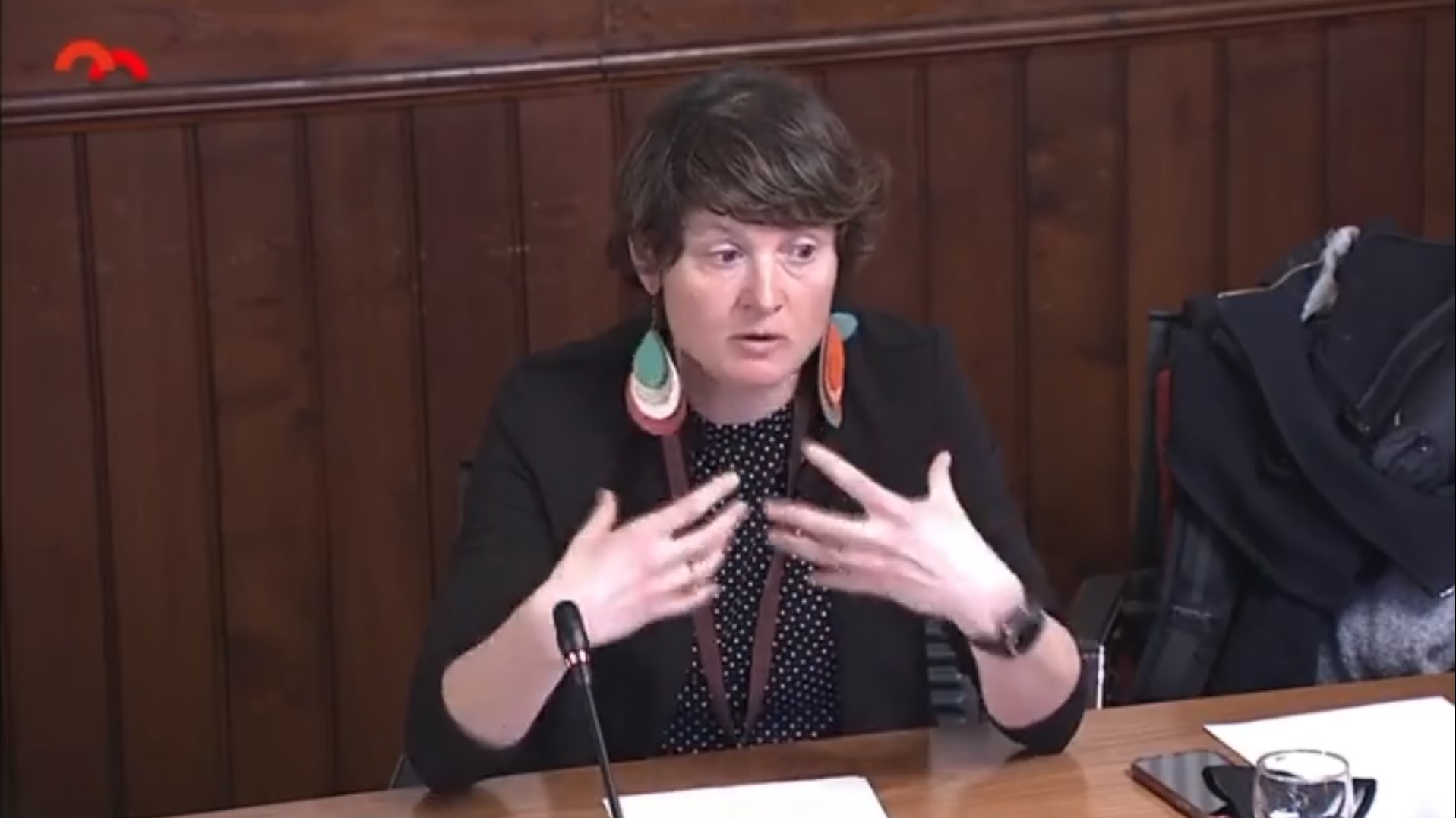Isabelle Anguelovski asks Parliament for criteria of justice and equity in the neighbourhood upgrading law
ICTA-UAB researcher Isabelle Anguelovski, leader of the BCNUEJ group, appeared before the Parliament of Catalonia on 14 March to participate in the Commission of Digital Policies and Territory, where she gave her expert opinion on the proposed law on urban, environmental and social improvement of neighbourhoods and towns.

Anguelovski also warned against the risk of "green gentrification" that comes with the improvement of these neighbourhoods through the creation of green projects.
During her intervention, Anguelovski expressed the need for the new neighbourhood improvement law to address issues such as environmental, social and racial inequalities, as well as their impact on the health of the most vulnerable groups.
From an environmental and climate injustice point of view, Anguelovski recalled that neighbourhoods with higher racial segregation or lower socio-economic levels are also those where pollution rates are higher, access to green spaces is more restricted, waste collection services are poorer, and access to affordable housing is more difficult. These neighbourhoods are less capable of adapting to climatic hazards such as floods or heat waves, which will become more frequent and more violent in the future.
However, Anguelovski also warned against the risk of "green gentrification" that comes with the improvement of these neighbourhoods through the creation of green projects and pointed out that these "greenification" processes lead to an increase in the price of buying and renting in the area, which ends up displacing the most deprived groups, who cannot afford the increase in costs. "Of the 28 cities around the world that we have studied, Barcelona is the city where this gentrification has worsened the most. The greener it gets, the more we see inequality and exclusion”, she recalled.
She pointed out that the proposed parliamentary law contains ample room for improvement in terms of attention to racialised groups. From the point of view of public health and urban planning, Anguelovski stated that neighbourhoods with greater racial segregation have more years of lost life, and those with lower economic levels have higher rates of chronic health disorders.
Regarding the rehabilitation of neighbourhoods, she called for the inclusion of energy efficiency and climate risk criteria in the rehabilitation of affordable housing, making it fit for the challenges of the future. In addition, she stressed the importance of policies to improve mobility and the creation of urban green infrastructure that not only follow sustainability criteria, but also accessibility criteria for the most disadvantaged groups.